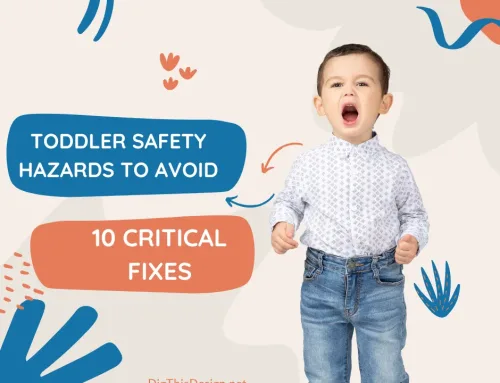How to treat insomnia? Around 10 to 30 percent of adults have chronic insomnia because of anxiety. It is common, yet it is still often neglected or missed. Insomnia is like a devious thief at night, stealing your much-needed rest and sleep. It can slowly and quietly take over your life if left unnoticed. Not treating or managing sleep disorders like insomnia can lead to severe long-term health complications, especially as people age.
Sleep is a significant factor in achieving holistic wellness. The lack thereof can easily affect someone’s health, including daily mood, energy levels, and productivity. Here’s what you need to know about insomnia, how to treat insomnia, and how to cope with it effectively.
What is Insomnia?
Sometimes, even when physically tired, sleeping can still be a challenge. This can be considered normal, especially for busy adults. However, suppose you experience difficulty with falling or staying asleep.
In that case, you always feel that you cannot go into a deep sleep, you wake up frequently at night, and you experience this almost every night. You may be experiencing insomnia.
Its long-term symptoms may also include:
- fatigue or not feeling well-rested,
- sleepiness during the day,
- brain fog,
- changes in mood,
- and feeling extreme emotions.
Many things can cause insomnia. And depending on its longevity and impact, it can be identified as the following types:
Acute Insomnia
Acute or short-term insomnia is among the most common types of insomnia adults experience. The feeling of sleeplessness lasts only for a few days or weeks and can often be caused by stressful events or significant changes and adjustments that one experiences in life.
This includes moving to a new place or house, starting a new job, or grieving a loss of a loved one—all of which are part of adulthood.
Chronic Insomnia
Chronic insomnia is a more severe type of sleep problem. It is usually characterized by experiencing difficulty sleeping for at least three nights per week for more than three months.
Chronic insomnia can have similar root causes to acute cases. But it can also be related to other factors like sleeping habits and sleep hygiene, physical and psychological health problems, neurological problems, medications, and other sleep disorders.
Effects of Insomnia
Insomnia messes up your sleep pattern. Being unable to sleep or rest at night affects the human body. It can cause a decline in productivity and performance at work or school and affect your emotions, further compromising your personal relationships.
Insomnia also increases the risks and severity of physical health problems, like high blood pressure and heart diseases. It can cause or aggravate mental health problems like depression and anxiety.
When and How to Get Diagnosed
If you experience persistent difficulty sleeping or staying asleep at night, it is best to speak to your physician about it. They will tell what tests you should undergo to diagnose you and prescribe treatment clinically. The earlier you consult, the better.
To know what’s been causing your insomnia, your physician or specialist may request physical exams, including blood tests. They may also review your sleeping habits and require you to have a sleep log or a diary for a couple of weeks.
Then, if they need more in-depth data, a sleep study can be a course of action, which involves monitoring body activities like brain waves and breathing as you sleep.
Tips on How to treat Insomnia or Combating Insomnia at Home
If you have had insomnia or feel you are on your way to developing such a sleep problem, there are things you can do to manage your condition at home.
1. Have a Sleep Schedule
Cure insomnia: Having a regular sleep schedule and strictly following it can be challenging for most adults. This especially applies to those who hustle in their careers and businesses or take care of their family. But it is important to note that quality sleep is a key to productivity. Hence, you should make sleep a priority.
Try to keep a proper balance of work and life. Schedule your sleeping time and stick to it as much as possible. When it’s bedtime, try to turn off all gadgets like your phone and make your bedroom conducive to relaxing and sleeping.
Try to wake up on time and follow this routine. This will help your brain memorize your body clock and trigger sleep hormones regularly when needed.
2. Be Active During the Day
People get easily sleepy when tired. To help the brain recognize the need for sleep at night, try to be active during the day.
Doing some light exercise in the morning and staying active the whole day can help use up your energy, leading to feeling sleepier when it’s bedtime.
Exercising before bedtime has been known to help induce sleep and promote better quality shuteye. Therefore, it is advisable to do light workouts like aerobics or yoga 1 to 2 hours before bedtime.
These exercises release endorphins and elevate the body temperature, signaling the brain to wake up. When both recede, the feeling of sleepiness will kick in.
3. Limit Your Caffeine Intake
Caffeine, a chemical compound found in coffee, is a stimulant. It increases blood pressure, stimulating the central nervous system, the heart, and the muscles.
That is why you feel awake and energized upon intake. It also blocks the adenosine receptors in the brain, the sleep-promoting receptors.
Caffeine is a known diuretic, meaning it causes frequent urination. All these sensations can disrupt sleeping patterns. Try to minimize your caffeine intake daily and take nothing caffeinated at least six hours before bedtime.
4. Using a Comfortable Mattress
Many factors can cause insomnia, including your sleeping environment. Sleeping in an unfamiliar or uncomfortable bed can exacerbate the difficulty of getting a night of good sleep.
Sleep is your capital to productivity, so better invest in a bed that will help you relax more. A soft, clean, and hypoallergenic Talalay latex mattress, can help relieve tension and relax muscles without risks of triggering allergic reactions like nasal allergy or asthma.
5. Practice Meditation
Meditation has been widely used for calming and relaxation. It primarily involves proper breathing and awareness of yourself—mind and body. Studies suggest that mindfulness meditation can help combat insomnia and promote better sleep among adults.
Mindfulness meditation revolves around mindfulness-awareness, where, through proper breathing and thinking, you focus your mind on the present.
This helps eliminate worries from the pastor of the future, therefore allowing you to relax and drift to slumber. There are guided meditations online, as well as apps for meditation and sleep. You can also seek and join mindfulness and meditation groups to help you.
Therapy for Insomnia
If your insomnia has become chronic, you may need to consider more advanced solutions like Cognitive Behavioral Therapy (CBT). As a psychotherapeutic approach to treating insomnia, CBT helps people recognize behavior and beliefs that affect sleep and sleeping patterns.
Then, a psychotherapist or sleep therapist will recommend strategies and treatment to reverse or change these behaviors to help you sleep better.
Cognitive Behavior Therapy for insomnia or CBT-I may include techniques like:
1. Stimulus Control Therapy
Helps develop better sleeping habits by eliminating the things that make you resist sleep. This includes only going to bed when sleepy, avoiding excessive naps and following a regular sleep schedule.
2. Relaxation Techniques
Involves activities that relax and calm the body and the mind, like meditation, muscle relaxation, and imagery.
3. Light Therapy
Exposure to artificial light that emits similar light to daylight but without harmful UV. This helps reset a person’s circadian rhythm or body clock.
4. Biofeedback
Observation of biological factors, like heart rate and muscle tension, by recording patterns using medical devices. Sleep therapists will provide the feedback and prescriptions to manage or change the patterns using the data gathered.
If All Else Fails
There are many other treatment methods and approaches to manage insomnia more. Though sleeping pills may provide immediate relief, they are not always the best option, as they can lead to being reliant on medication.
Changing your sleeping habit and improving sleep hygiene can promote better quality sleep and combat insomnia in the long run. But if your sleeping problem lasts for over four weeks, especially if it is harming your daily life, it is best to call your doctor.
Other problems, like difficulty breathing when you are sleeping or experiencing pain that prevents you from sleeping, can be a whole other health condition that correlates with insomnia.
But, again, it is best to have yourself checked by a licensed health professional to get accurate diagnosis and treatment suggestions.
Don’t Let Insomnia Take Over Your Life
Insomnia is among the more severe sleep problems that adults commonly face. If untreated, it can cause more health complications down the line.
In addition, it can be crippling only if you let it. Take back control of your sleep and your life by developing healthier sleeping habits and getting professional help when needed, as early as possible.
Other Posts You May Enjoy:
Sleep Well: 10 Key Tips for How to Get More Deep Sleep
Meditation Room Ideas for Your Home
How Home Interiors Can Work for Kids and Adults
6 Easy Ways to Improve Your Sleeping Habits
Images Courtesy of Canva.





